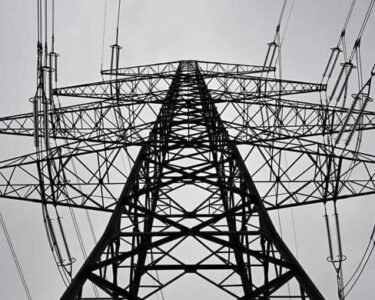When you consolidate debt, you roll it into one payment. Debt consolidation can streamline your payments, help you save in interest fees, and hopefully lower your monthly payments. Lenders who offer personal loans for debt consolidation aren’t all the same, and their rates, loan amounts, and what they’re best at vary.Here you’ll find our top picks for lenders that offer debt consolidation loans.
|
8.99% – 25.81% (with autopay and direct deposit discount) |
|||||
*Credit score and APR are variable based on your borrower profile and will change over time. APRs are current as of June 26, 2023.
Best overall: Upgrade
Upgrade is our standout choice for debt consolidation loans. You can borrow as little as $1,000 and as much as $50,000, with flexible repayment terms that range from 24 to 84 months. Joint applicants are permitted, which can boost your odds of approval. Upgrade also gives you the option of paying creditors on your behalf. Once approved for a personal loan, you can receive funds as soon as within one business day. If Upgrade is sending payment directly to your creditors, it can take up two weeks to clear.
Best for fair or average credit: Upstart
Upstart is our top pick for debt consolidation loans for those with poor or average credit. While many lenders have minimum credit scores in the 500s or 600s, Upstart will consider you for a loan if you have a credit score as low as 300. Plus, while a standard required maximum debt-to-income ratio is typically 35%to 40%, Upstart’s DTI is capped at 45% to 50%. Beyond your credit score and finances, Upstart will look at other factors, such as your employment and education when reviewing your application.
Best for secured loans: Best Egg
We chose Best Egg for our best secured loans spot for several reasons. Upstart offers loan amounts up to $50,000, and you can receive funding for debt consolidation within 24 hours. What’s particularly notable about Best Egg’s secured loans is that the collateral you’re offering isn’t the home itself, but the fixtures attached to the home including light fixtures, vanities, and built-in cabinets and shelving.
Best for credit card debt: Happy Money
Happy Money focuses on credit card debt consolidation. Depending on what you qualify for, you can consolidate up to $40,000 of your credit card balance. In turn, you can expect more customized advice tailored for folks who want to knock out high-interest credit card debt. If you would like to change your payment due date, you might be eligible. However, you can only make this request once every 12 months.
Best for small loan amounts: PenFed
With borrowing amounts that start at low as $600, PenFed takes the spot for best for small loan amounts. This could potentially be helpful if you have a small balance that you’d like to tackle through debt consolidation. Plus, PenFed doesn’t charge any origination fees, which can help you save if you’re trying to tackle a small amount of high-interest debt.
Best for low rates: Discover
Depending on the repayment term, your credit and other financial factors, you can get approved for a fixed interest rate that starts at 6.99%. However, lower interest rates are typically paired with shorter repayment terms. Another standout feature of the Discover personal loan is your funds can be received as early as the next business day.
Best for no fees: SoFi
There’s a lot to like about SoFi: borrowing amounts up to $100,000, flexible repayment terms, and a discount on your interest rate if you opt for autopay and direct deposit. But what’s particularly notable about SoFi’s personal loans is that they don’t tack on any origination fees, early payoff fees, or late fees. Another unique perk that’s not commonly found: Should you lose your job, SoFi can put your payments on “pause” until you land new employment.
Best for low, longer repayment terms: LightStream
If you’re mulling debt consolidation to stretch out your payments, LightStream offers repayment terms up to 122 months or 12 years. This can give you plenty of time to pay off your debt should you need it. However, you’ll want to be watchful of how much you owe in interest, and only stretch out your terms only as necessary.
Debt consolidation loans pro and cons
Let’s take a look at the pluses and minuses of a debt consolidation loan.
Pros:
- Simplified payments. By going the debt consolidation route, you only make a single payment each month. The lender might be able to make payments on your behalf, so that means fewer payments to manage.
- Could free up money. If your monthly payments will be lowered, that means more money to put toward your living expenses or savings goals.
- Could save on interest. If debt consolidation equals a lower interest rate, you could potentially save on interest fees with your new loan; however, you’ll need to do some math to see how much you’ll pay on interest via debt consolidation versus paying off your existing debt each month.
- Set repayment plan. Because you have a set repayment term, it’ll likely be quicker for you to pay off your debt versus making minimum payments on your credit cards.
Cons
- Upfront fees. Because you’re taking on a new loan, you might need to pay origination fees, which are typically a percentage of the amount you’re borrowing and are taken out of the loan amount.
- Might pay more in interest. If you’re consolidating debt to lower your monthly payments, this stretches out the repayment term, and you could end up owing more interest fees over the life of the loan.
- Need strong credit. You typically need a strong credit score to snag the most favorable terms and rates on a personal loan for debt consolidation, otherwise it might not be as worthwhile financially.
When should you get a debt consolidation loan?
If you have high-interest debt, good credit, and would like to either lower your monthly payments, save in interest fees, or both, then it could be beneficial to get a debt consolidation loan. You’ll want to shop around and weigh the pros and cons before deciding whether it’s the right choice for you.
How to choose a debt consolidation loan
When shopping around for a debt consolidation loan, it’s important to know what’s most important to you, and what your particular needs are. Here are some of the main factors to consider:
- Lending requirements (i.e., minimum credit score, DTI limits, income and other financial requirements).
- Interest rates.
- Loan amounts.
- Loan repayment terms.
- Origination fees.
- Prepayment fees (if any).
- Mobile app capabilities.
- Customer service availability and reputation.
- Online reviews.
How to get a debt consolidation loan
If you’ve decided that rolling your existing debt into a new loan might be a good option for you, here are the steps to take to get a debt consolidation loan.
Check your credit
Your credit plays a big determining factor in whether you get approved for a loan, and the loan amounts, interest rates, and terms.
Order a credit report
You can get one for free from each of the three credit bureaus at AnnualCreditReport.com. Comb through your report and see if there’s anything missing or inaccurate. If so, it could negatively impact your credit.
You can check your score through a free credit monitoring service. Plus, many credit cards offer a free credit score check. They might not be exactly the same as your FICO® Score that lenders get, but it should be fairly close.
Shop around
Do a bit of comparison shopping. Many lenders offer pre-qualification, which means you can get an estimate of the amounts, rates and terms you will most likely be approved for.
You’ll want to see how much the loan will cost you in interest and other fees, what the monthly payments will look like, and how you can go about getting the best terms and rates possible.
Apply for a loan
Once you’ve decided on which lender you’d like to get a debt consolidation loan with, you can submit an application. Usually, you’ll need to provide personal information, as well as the desired loan amount. The lender will probably ask you to provide:
- ID verification (i.e., Social Security card, government-issued ID like a driver’s license, military ID, or passport).
- Pay stubs (or tax returns if you’re self-employed).
- Pay statements.
- Proof of residence (i.e., voter registration, utility bill or cell phone bill, mortgage payment).
Wait for approval and funds disbursement
Should you get approved for a debt consolidation loan, lenders usually pay your creditors directly on your behalf. You’ll be asked for their information and how much you’d like to pay each creditor each month. Otherwise, you’ll receive funds disbursement into a designated bank account.
Alternatives to debt consolidation loans
Besides a debt consolidation loan, here are some other options to pay down your debt.
Tweak your budget
If you’re finding it tough-going to stay on top of your debt payments, see if you can adjust your budget by either scaling back on expenses, finding ways to earn more, or do both. In turn, it could help you shore up enough cash to put toward your debt.
Balance transfer credit card
If you have strong credit, you can move the existing balance on your credit cards to a new one with a zero or low APR. The intro rate can usually last anywhere from 6 to 21 months. After that, the standard APR kicks in.
The key is to map it out so you aggressively pay down your debt before the intro rate ends. Otherwise you might find yourself paying more in interest fees with the new card.
Cash-out refinance
If you’re a homeowner, you tap into the equity you’ve built into your home by taking out a mortgage that’s a larger amount than what you owe, and you pocket the difference. The cash you get can be put toward paying off your debt.
HELOC or home equity loan
If you own a home, you can borrow against the equity into your home via a home equity line of credit (HELOC) or a home equity loan.
The main difference between the two is that a HELOC works similar to a credit card. You have access to a line of credit, and can borrow as you need and pay it off over time. You can continue to borrow as long you make payments toward the balance.
With a home equity loan, you receive a single lump sum upfront. Home equity loans typically are fixed-rate, while HELOCs can be fixed or variable rate loans.
Debt management plan (DMP)
You can work with a non-profit credit counseling organization to look at your existing debt and financial situation to create a debt management plan (DMP). The credit counseling agency will contact your creditors to see if they can lower your monthly payments, interest rates, or both. You make a single payment to the agency and they will pay creditors on your behalf.
One of the downsides of a DMP is that they might ask you to close your credit cards until your debts are paid, which can hurt your credit. There usually is a cost to work with an agency, but it’s usually a low monthly fee.
Debt settlement
Debt settlement is typically an option when you feel like you have no other choices besides bankruptcy. You work with a debt settlement company to try to negotiate with creditors on your behalf to try to lower the amount you owe. Working with these “debt relief” or “debt adjusting” companies can be risky and often peg you with expensive fees.
Bankruptcy
If you’re in financial hot water, and the other options don’t seem feasible, you might want to consider filing for Chapter 7 bankruptcy. This is a legal process that aims to clear or reduce as many debts as possible.
The major downside is that it has a lasting effect on your credit, and bankruptcy shows up on your credit report for seven to 10 years. It can make it hard for you to open a new credit card, or a car loan or mortgage.
Frequently Asked Questions (FAQ)
What is a debt consolidation loan?
A debt consolidation loan is a tactic to pay off your existing high-interest debt. You roll your debt into a single one, usually with either a lower interest rate or lower monthly payment. It can help you save on interest or free up cash. It also means fewer bills to manage.
How do debt consolidation loans work?
Debt consolidation doesn’t wipe out your debt. Instead, you are taking out a new loan to roll your existing debts into, either to save on interest, lower payments, or both. Essentially, you’re taking out a personal loan, and lenders can often make payments to creditors on your behalf.
Does consolidating loans hurt credit score?
When you apply for a debt consolidation loan, it can negatively impact your credit score. That’s because the lender performs a hard pull on your credit, and the effect is only temporary.
What kind of credit score do I need for a consolidation loan?
While there’s no specific required credit score across the board to get approved for a debt consolidation loan, some lenders do have minimum credit score requirements. The higher your credit score, the best terms and rates you’ll likely qualify for.




